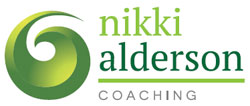How might the dawning of Psychological Safety in law be greeted?
The hierarchical structure of the traditional law firm, with the highly competitive targets demanded of the billable hours culture, together with the “image is everything” attitude of many lawyers pressured into brushing aside perceived weaknesses and constantly striving for perfection, don’t immediately lend themselves to a psychologically safe working environment for those in the legal profession, where employees feel able to show up authentically, without risking potentially negative consequences, whether to their reputation or career.
It may yet be a stretch then for lawyers, and the firms they work for, to trust that the culture is receptive to team members asking questions, taking risks, admitting mistakes, or offering up new ideas without fear of embarrassment, negative “press” or, worse still, punishment- arguably more so now, in a post-pandemic age, where so many work from home or flexibly. Without the right support in place, mistakes – questions even – can be more easily suppressed, missed, or deliberately avoided.
I wonder how many lawyers working remotely truly feel able to voice their ideas freely or raise a controversial objection to something now, especially via Teams Meetings or Zoom, without fear or favour? Or admit to a mistake, or a wobble in self-confidence, without that much missed “watercooler” moment?
The evidence speaks for itself
The negative consequences of a toxic culture are well-documented: Where people feel so unsafe to speak up, they stay silent or, worse still, lie which in turn further damages them and the organisation long-term.
The pandemic has heightened such feelings as the pressures of billable hours leak more freely into personal lives as boundaries between work and home lives become further blurred.
Pre-covid, in the extreme case of the Wells Fargo account scandal, large scale fraud was committed by retail bankers under pressure from managers to achieve unrealistic sales targets on certain financial services products. No one spoke up, collectively choosing dishonesty as opposed to facing any potential negative consequences at work for speaking out.
The Solicitors Regulatory Authority has seen similar cases involving junior solicitors or trainees who have forged documents or mismanaged funds due to the pressures of billable hours, working in firms where managers took the view that failure to achieve those targets lay solely at the door of the individual and would likely be given as a reason for dismissal.
Does it ever make you wonder how psychologically safe your firm or organisation is in this increasingly remote world of work?
The positive benefits of a shift in approach
The benefits of cultivating such a psychologically safe environment are equally well-documented, however. Amy Edmondson, American Professor of Organisational Leadership and prolific Author on the topic, in her 2019 medics study found that, unexpectedly, high performing teams reported higher error rates. Her research brought her to the conclusion that this was not because those high performing teams made more mistakes, but rather that they were more willing and able to talk about them. Those employees enjoyed the benefits of belonging to a climate in which they all – at whatever level – were empowered to speak up. She was a great advocate for the heroism in doing so, and it being “the right thing”.
In a virtual world, whilst it might take more effort or creativity to keep employees connected and communicative, the rewards to this kind of openness and transparency clearly speak for themselves.
Change starts with you
Although a way to go in the legal profession, it’s more than possible to begin a culture change. It starts with leaders, whilst requiring the individual participation and responsibility of all. Everyone has a role to play in creating a psychologically safe culture.
Leaders should Lead
So what then can you do, as a Leader in law, to engender the deep levels of trust required, even in the virtual arena?
- Be a role model: Lead by example. Create an atmosphere of openness and honesty; encourage innovative ideas, sharing and equality, for everyone, whatever level. Notice what works for your teams to bring them together remotely and talk freely.
- Listen more, talk less: Encourage employee engagement by being genuine in your curiosity. Even if it challenges you, pick up the phone; diarise a 1-1. Pose good questions and listen intentionally to the answers. Suspend judgment or ask for honest feedback with impunity.
- Show employees the way: Demonstrate in your responses to contributions by team members, via whatever media, that perceived risk-taking doesn’t have to be dramatic and is indeed encouraged. Likewise, see “mistakes” as “learning” as opposed to a thing to be eradicated or punished. Make being vulnerable ok. Encourage constructive disagreements. It could be as simple as providing a transparent environment – regular team catch ups via Zoom perhaps- in which employees are safe to ask a basic question or share a potentially controversial idea without being branded naïve, inexperienced, or being divisive.
- Be pro-active: go further than basic appreciation of your team’s contribution. Value, and act upon, it, even if in the virtual world it means going that extra mile to demonstrate meaningful gratitude.
- Find the buy-in: By identifying a collective meaning in the work of the team, both for the individual and as an organisation as a whole, everyone will feel their work is valuable and valued, there will be more mutual respect, increasing trust across the board, and making the hierarchical structure much less important. This makes the culture more accessible and helps to capitalise on the good work already achieved through the pandemic of breaking down barriers with remote video calls which have allowed us all a little peek into the otherwise private lives of us all.
Reap the Retention Rewards
Having engaged, happy, creative employees with a strong buy-in to the firm, and who remain visible still, even remotely, will support the organisation to enjoy increased productivity and engender a sense of loyalty and community, which so many have missed through the unsettling and disconnected, “living at work” lockdown days.
Just imagine what that could do for retention rates within the profession.
Nikki Alderson Biography
Nikki Alderson, specialist coach, speaker and author, and former Criminal Barrister with 19 years’ experience:
- supports organisations, law firms and barristers’ Chambers to retain female talent; and
- empowers female lawyers to achieve career ambitions.
Nikki specialises in 3 areas:
- Women leadership transition and change;
- Enhanced career break returner support; and
- Workplace resilience, mental toughness, confidence and wellness.
She is the author of Amazon No.1 Bestseller Raising the Bar: empowering female lawyers through coaching, (https://amzn.to/3fodKQX) nominee for the Inspirational Women Awards, Champion of the Year Category and finalist in the 2020 Women in Law Awards, Legal Services Innovator of the Year and 2019 International Coaching Awards, International Coach of the Year Category.

